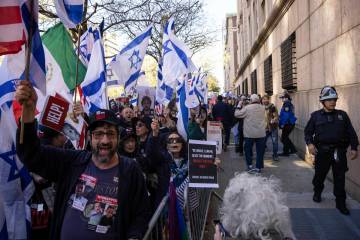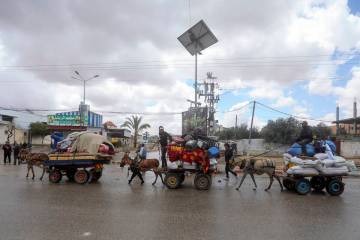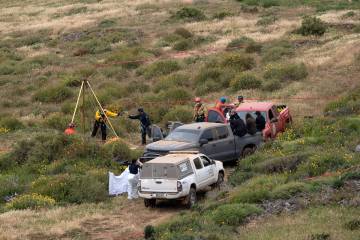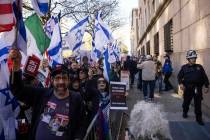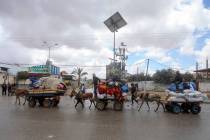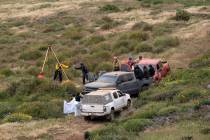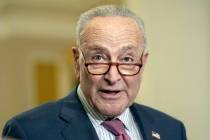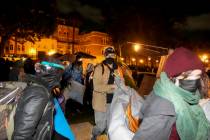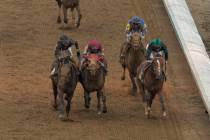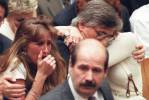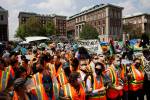Former NAACP chairman Julian Bond passes away
Julian Bond, a lifelong civil rights leader and former board chairman of the NAACP, has died. He was 75.
Bond died Saturday night after a brief illness in Fort Walton Beach, Florida, according to the Southern Poverty Law Center, which he served as founding president in the 1970s.
"Not only has the country lost a hero today, we've lost a great friend," the legal advocacy group said in a statement.
The Tennessee native was on the forefront of the 1960s civil rights movement and was among activists who demanded equal rights for African-Americans.
President Barack Obama highlighted what he called Bond's lifetime mission of justice and equality.
"Julian Bond was a hero and, I'm privileged to say, a friend," Obama said in a statement.
Obama added: "Julian Bond helped change this country for the better. And what better way to be remembered than that."
Bond was part of a small group of students taught by the Rev. Martin Luther King Jr. at Morehouse College in 1962.
"(King) was certainly known, but he was not nearly as famous then as he became, and he certainly didn't act like a famous person," Bond told CNN in 2013. "That was my feeling in being in that class and listening to him. He was important. He definitely seemed like an important person, and he was important in my life. I knew even at the time that I was privileged to learn from him, but he never made us feel as if he was that important. That's not what it was about."
It was around that time that Bond helped lead one of the first student sit-ins in Atlanta.
"With Julian's passing, the country has lost one of its most passionate and eloquent voices for the cause of justice," said Morris Dees, co-founder of the SPLC.
Champion of equal rights
Bond campaigned for equal rights for minorities beyond the United States.
In 1985, police arrested him outside the South African Embassy in Washington, where he was protesting against apartheid, the legalized racial segregation enforced by South Africa at the time.
"He advocated not just for African-Americans, but for every group, indeed every person subject to oppression and discrimination because he recognized the common humanity in us all," Dees said.
Bond was elected to the Georgia House of Representatives in 1965, but his white colleagues in the House refused to let him take his seat because of his opposition to the Vietnam War. A year later, the Supreme Court accused the Legislature of violating his freedom of speech and ordered it to seat him.
Lawmaker, educator
In addition to the Georgia House, he served in the state Senate for years.
The former lawmaker also taught at various universities, including Harvard and the University of Pennsylvania, and was chairman of the NAACP for a decade. He even hosted "Saturday Night Live."
And his advocacy for equal rights went beyond just issues of race.
In a 2013 interview with CNN's Anderson Cooper, Bond said that those who supported the civil rights movement should support the movement for gay rights.
"I understand particularly if you're black and you like to think of the civil rights (movement) as something black people do," Bond said. "But this is not something we own. It's something we ought to share with others and say 'Try this, we did this and it worked, try this, don't do this, it didn't work that well.' Other things we ought to say to people, 'Do what we did, we will help you if we can, and remember, we are among you.'"
"The NAACP mourns the passing of chairman Julian Bond, civil rights titan and our brother," the civil rights group said in a tweet. "May he rest in eternal peace."
Bond is survived by his wife, Pamela Horowitz, and five children.





